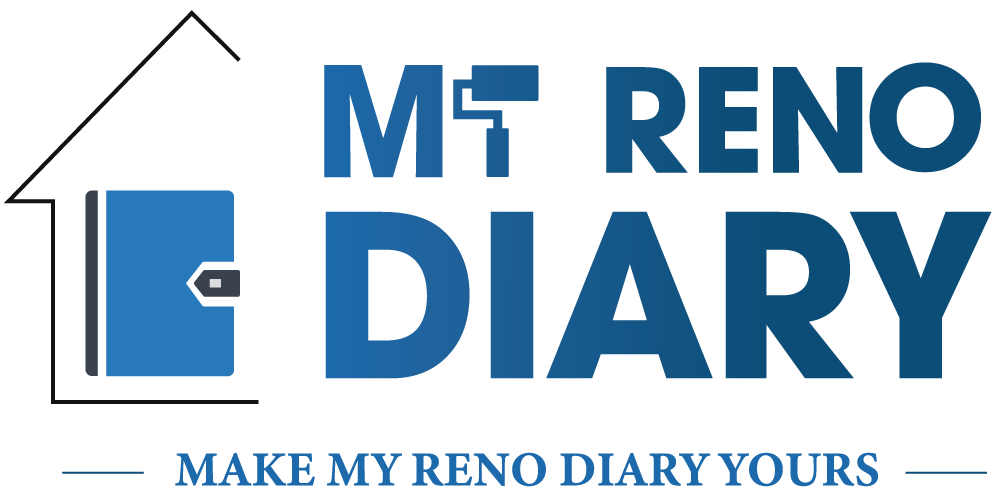Renovating a condo can be a rewarding experience, transforming your living space to better suit your needs and preferences. However, it comes with unique challenges that require careful planning and execution. This article provides essential tips for condo renovation, ensuring a smooth and successful project. Whether you’re upgrading your kitchen, modernizing your bathroom, or redesigning your living area, these tips will help you navigate the renovation process effectively.
Key Takeaways
- Condo renovations require thorough planning and adherence to building regulations.
- Communication with your condo association and neighbors is crucial.
- Hiring experienced contractors and setting a realistic budget can save time and money.

Planning Your Condo Renovation
Define Your Goals
Determining your renovation goals is the first step. Are you looking to increase space, improve functionality, or update the aesthetics? Defining what you want to achieve helps in making informed decisions throughout the renovation process. For example, if you aim to enhance storage, consider built-in cabinets and multifunctional furniture. If aesthetic improvement is your goal, focus on color schemes, finishes, and modern design elements.
Creating a priority list of the areas you want to renovate and the changes you want to make is also crucial. This list will guide your planning and budgeting. For instance, renovating a kitchen might be at the top of your list if it lacks modern appliances and sufficient counter space.
Budgeting and Financing
Establishing a realistic budget that includes all aspects of the renovation, from materials and labor to permits and unexpected expenses, is essential. Your budget should be detailed and account for every possible cost. For example, if you plan to install high-end kitchen appliances, ensure this is reflected in your budget.
Consider financing options such as personal loans, home equity loans, or renovation loans if needed. It’s wise to consult with a financial advisor to explore the best options for your situation. Additionally, setting aside a contingency fund (typically 10-20% of your budget) for unforeseen expenses is a good practice.

Understanding Condo Regulations and Restrictions
Condo Association Rules
Before starting your renovation, check with your condo association for any rules or restrictions regarding renovations. Some associations have specific guidelines on what changes can be made. For instance, there might be restrictions on noise levels, work hours, and types of materials that can be used.
Obtain necessary approvals and permits before starting your renovation. This often involves submitting detailed renovation plans to the condo board for review. Failure to comply with condo regulations can result in fines or having to undo completed work.
Noise and Work Hours
Be aware of noise restrictions and permitted work hours in your condo building. Plan your renovation schedule accordingly to avoid conflicts with neighbors. For example, many condos restrict noisy work to weekdays between 9 AM and 5 PM. Informing your neighbors in advance about the renovation can help maintain good relations and prevent complaints.
Hiring the Right Contractors
Research and Recommendations
Look for contractors with experience in condo renovations. Seek recommendations from friends, family, or online reviews. An experienced contractor will be familiar with the specific challenges of condo renovations, such as working within confined spaces and complying with condo rules.
Verify the contractor’s credentials, licenses, and insurance coverage. This ensures they are qualified to perform the work and that you are protected in case of accidents or damages.
Interviewing and Quotes
Conduct interviews with potential contractors to understand their approach and get a sense of their reliability. Ask questions about their experience with similar projects, their timeline for completion, and how they handle unexpected issues.
Request detailed quotes from multiple contractors to compare costs and services. A comprehensive quote should include a breakdown of labor, materials, and any additional fees. Comparing quotes helps ensure you get the best value for your money.
Design and Layout Considerations
Maximizing Space
Utilize space-saving solutions such as built-in storage, multipurpose furniture, and open shelving. For example, built-in cabinets can provide ample storage without taking up additional floor space. Multipurpose furniture, like a sofa bed or an expandable dining table, can make your condo more functional.
Consider an open floor plan to create a more spacious and cohesive living area. Removing non-load-bearing walls can open up the space, making it feel larger and more connected. This is particularly effective in condos where space is limited.

Lighting and Ventilation
Incorporate natural light wherever possible to brighten up the space. Large windows, glass doors, and skylights can bring in more natural light. Use light colors and reflective surfaces to enhance the effect, making the space feel bigger and more inviting.
Ensure proper ventilation in areas like the kitchen and bathroom to prevent moisture buildup and improve air quality. Installing exhaust fans and using moisture-resistant materials can help maintain a healthy environment.

Choosing Materials and Finishes
Durability and Maintenance
Select materials that are durable and easy to maintain. This is especially important for high-traffic areas like the kitchen and bathroom. For instance, quartz countertops are durable and resistant to stains, making them a practical choice for kitchens.
Consider eco-friendly options such as bamboo flooring, recycled glass countertops, and low-VOC paints. These materials are not only sustainable but also contribute to a healthier living environment by reducing exposure to harmful chemicals.

Aesthetic Appeal
Choose finishes that complement your overall design theme. Consistency in color and texture can create a cohesive look throughout the condo. For example, if you prefer a modern aesthetic, opt for sleek, minimalist finishes with neutral colors.
Incorporate personal touches through decorative elements like artwork, rugs, and throw pillows. These items can add personality to your space and make it feel more like home.
Managing the Renovation Process
Timeline and Milestones
Create a detailed timeline for your renovation project, including key milestones and deadlines. For example, set a date for when the demolition should be completed, when new fixtures should be installed, and when final inspections should take place.
Regularly check in with your contractor to ensure the project is progressing as planned. Address any delays or issues promptly to keep the project on track.
Communication and Coordination
Maintain open communication with your contractor, condo association, and neighbors. Inform them of any major work that might affect them, such as loud demolition or the delivery of large materials.
Address any issues or changes promptly to avoid delays and additional costs. For example, if you decide to change a material or design element mid-project, discuss the implications with your contractor and get their input on the best course of action.
Post-Renovation Considerations
Final Inspections and Touch-Ups
Conduct a thorough inspection of the completed work to ensure it meets your expectations and adheres to the agreed-upon plan. Look for any defects or unfinished areas and address them with your contractor.
Address any necessary touch-ups or corrections before finalizing the project. This might include repainting, fixing minor flaws, or adjusting installed fixtures.
Cleaning and Moving In
Plan for a thorough cleaning of the renovated areas before moving back in. This helps to remove any dust or debris left from the renovation process. Hiring a professional cleaning service can ensure a deep clean.
Arrange for the return of any temporarily relocated furniture or belongings. Consider redecorating the space to reflect the new design and make it feel fresh and updated.
Conclusion
Renovating a condo can enhance your living experience and increase the value of your property. By following these essential tips, you can ensure a smooth and successful renovation process. From careful planning and budgeting to hiring the right contractors and managing the project effectively, each step is crucial for achieving your desired outcome. With proper preparation and execution, your condo renovation can transform your space into a beautiful and functional home.
Popular Condo Renovation Trends
- Open Floor Plans: Many homeowners are opting for open floor plans to create a more spacious and modern look. This involves removing unnecessary walls to create a larger, more cohesive living area.
- Smart Home Technology: Integrating smart home systems for lighting, security, and temperature control is becoming increasingly popular. These systems offer convenience and energy efficiency, making them a valuable addition to any renovation.
- Eco-Friendly Materials: There is a growing trend towards using sustainable materials like bamboo flooring and recycled glass countertops. These materials are not only environmentally friendly but also add a unique aesthetic appeal.
- Luxury Bathrooms: High-end bathroom fixtures, including rain showers and soaking tubs, are becoming popular. These features provide a spa-like experience at home and can significantly enhance the comfort and value of your condo.
Average Renovation Timeframes
| Renovation Area | Typical Duration |
| Kitchen Renovation | 6-8 weeks |
| Bathroom Renovation | 4-6 weeks |
| Living Room Renovation | 2-4 weeks |
Kitchen renovations typically include time for demolition, installing new cabinetry, countertops, appliances, and finishing touches. Bathroom renovations involve replacing fixtures, tiling, plumbing work, and installing new lighting. Living room renovations can include updating flooring, painting, installing new lighting, and adding built-in storage solutions.
Common Challenges and Solutions
- Noise Restrictions: Many condos have strict noise restrictions, which can limit work hours. Solution: Plan work during permitted hours and communicate with neighbors to minimize disruptions.
- Limited Space for Materials: Storing renovation materials in a condo can be challenging. Solution: Schedule deliveries as needed to minimize on-site storage. Work with your contractor to create a phased plan that brings in materials only when necessary.
- Obtaining Permits: Navigating the permit process can be time-consuming. Solution: Start the permit application process early and ensure all required documentation is in order. Work closely with your contractor to meet all regulatory requirements.
By understanding these trends, timeframes, and challenges, homeowners can better prepare for their renovation projects and make informed decisions that align with current styles and practical considerations.


